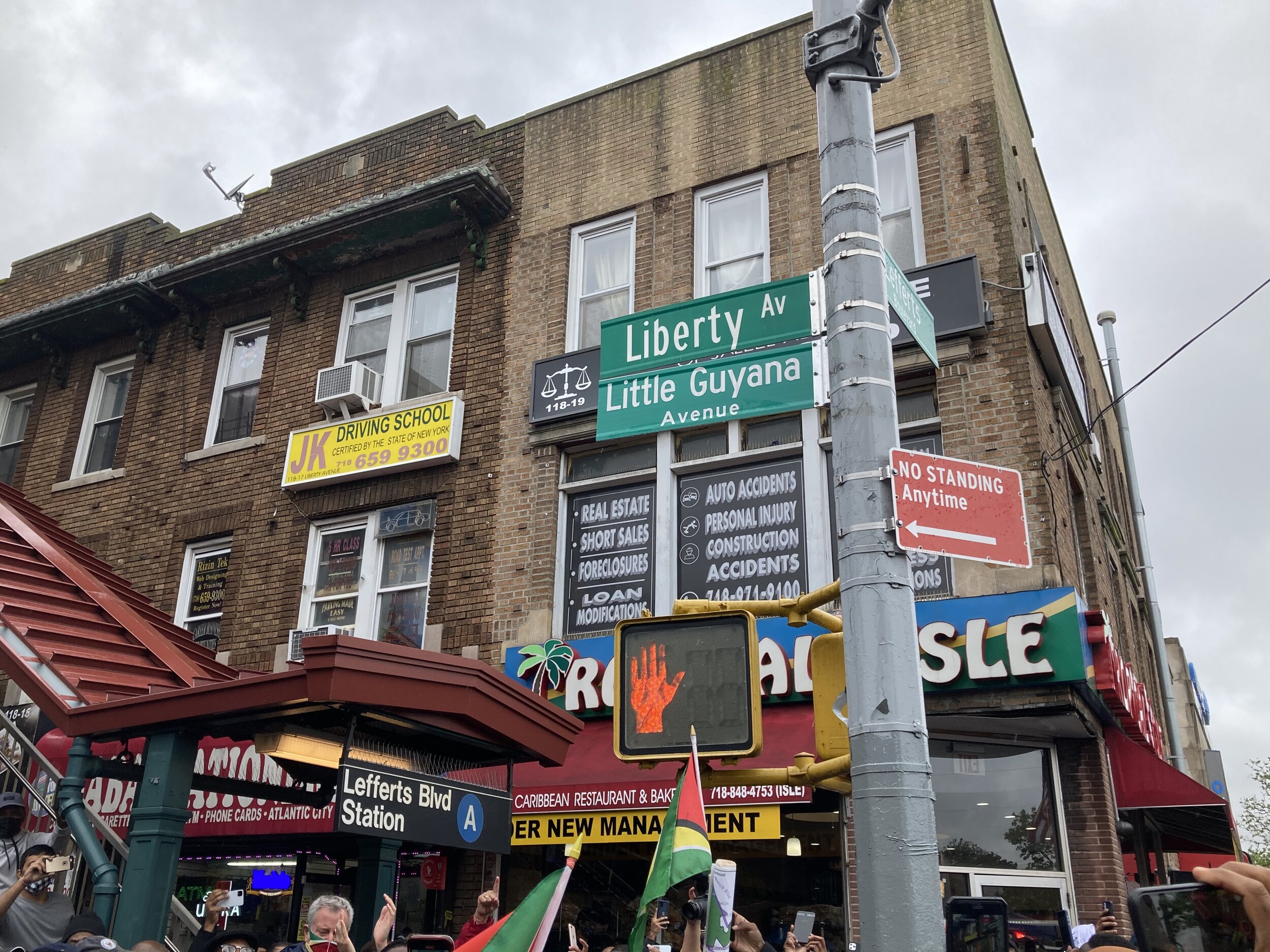Guyanese community in Richmond Hill honored with street naming
/Queens’ Guyaneese community celebrated the co-naming of the corner of Liberty Avenue and Lefferts Boulevard. Photo via Adams’ office
By Rachel Vick
Hundreds of Richmond Hill residents, elected officials and Guyanese community members braved the rain Saturday, May 29, for the renaming of the corner of Liberty Avenue and Lefferts Boulevard to “Little Guyana Avenue.”
The unveiling of the new street sign was orchestrated by Councilmember Adrienne Adams, who sponsored and passed legislation to co-name the street and honor the community’s heritage and contributions to Queens.
“The historic street co-naming of Liberty Avenue and Lefferts Boulevard as ‘Little Guyana Avenue’ has been long-awaited but so well-deserved,” Adams said. “For decades, our Guyanese community has contributed to the economic, cultural, and political fabric of Queens, and now their accomplishments and impact are officially recognized through this new street sign.”
She said that recognition through renaming is a “testament to the hard work and sacrifices of our immigrant families, longtime small businesses, and community organizations and leaders who have endeavored to make their mark.”
Cultural touches like a Tassa Band leading the way to the sign post for the unveiling celebrated the heritage of the largest Guyanese community outside Guyana. They make up the second largest foreign-born immigrant group in Queens and the fifth largest in New York City, according to U.S. Census data.
The recognition is “long overdue,” said Shanie Persaud, who emigrated from Guyana at 23 and settled in Queens.
“It solidifies the contributions of Guyanese in the U.S.,” Persaud said. “You drive through the avenues and streets, see the beautiful homes and flowers and everything together speaks to the hard work and dedication the Guyanese have made over the decades.”
“I’m extremely proud but… sad to say that we don't have the kind of political representation the community should have gotten after these years,” she added. “It's my hope that after this recognition in the physical form, that the next step will be that the folks who hold the torch of political leadership see the significance [of the community] and allow for participation in politics and community boards... to get to a place where we have a seat at the table where decisions are made.”




